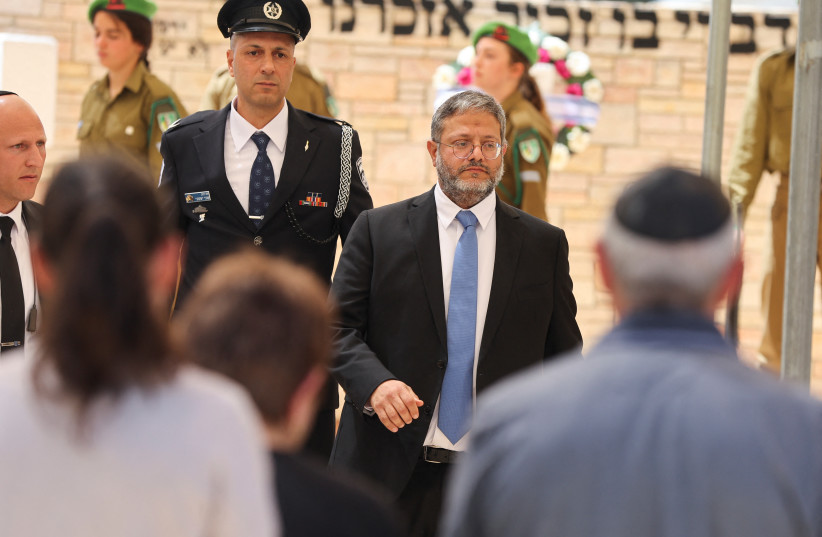"Today, more than ever, on the day we remember the heroes of the nation, we must remember that we are brothers: Jews, Druze, Muslims, Bedouins, Christians, Circassians. Brothers in service, brothers in arms, brothers in blood," Prime Minister Benjamin Netanyahu said at his speech at Israel's national Remembrance Day ceremony at Mount Herzl Military Cemetery in Jerusalem.
The prime minister, whose older brother Yonatan (Yoni) Netanyahu was killed during the famous raid in 1976 to free Israeli hostages from Entebbe, Uganda, recounted the story of the Lichtenstein family, who lost three sons, two in Israel's wars: Yaakov and Avner were killed during the War of Independence in 1948, and Eli was killed in a traffic accident on his way back from reserve duty in the Golan Heights in 1968.
"Three brothers who fell, but left a tremendous family heritage: The highest sacrifice by the sons, the highest courage by the parents. This heroism of spirit is what gives us throughout the ages the ability to overcome our enemies and the ability to build our state," the prime minister said.
After concern, Remembrance Day ceremonies largely pass quietly
Remembrance Day ceremonies in military ceremonies across the country ended with few disturbances, after over a week of controversy with bereaved families calling on politicians not to attend the ceremonies, and politicians from all sides pleading for Israel's citizens to respect the holiness of the day.
Most of the ceremonies were completed without disruptions.

A few disturbances occurred at the Beersheba military cemetery, where a number of people raised signs against National Security Minister Itamar Ben-Gvir, called out for him to leave, and even some attempted to sing and drown out his speech. A small number of arguments broke out between the protestors and people who requested that they remain silent. At the end of the speech, some people clapped.
The Beersheba cemetery included heavy security, and some cemetery goers complained that this led to long lines in order to enter the cemetery.
Another minor disturbance occurred in Ashkelon, where a woman held up a sign as Communications Minister Shlomo Karhi began to speak, reading "You go to hell," after the minister said a number of weeks ago that the protestors against the government's judicial reforms should go to hell.
Other calls occurred ahead of Environment Protection Minister Idit Silman's speech in Kiryat Anavim.
In Ousfia, a Druze town south of Yokne'am, people blocked Intelligence Minister Gila Gamliel from entering the town's military cemetery. Gamliel eventually left and did not visit the cemetery.
In Nachalat Yizhak, Science and Technology Minister Ofir Akunis announced that he would give the time allotted to his speech to a bereaved mother. The announcement was met with some clapping.
A number of coalition and opposition MKs appeared at cemeteries together in a show of unity. These included National Unity MK Michael Biton and Religious Zionist Party MK Moshe Solomon, who together visited the grave of Biton's brother, Avraham, who died during his IDF service in 1985. Another such pair included Deputy Agriculture Minister, Shas MK Moshe Aboutboul, who visited the Ramle military cemetery alongside National Unity MK Chili Tropper.
